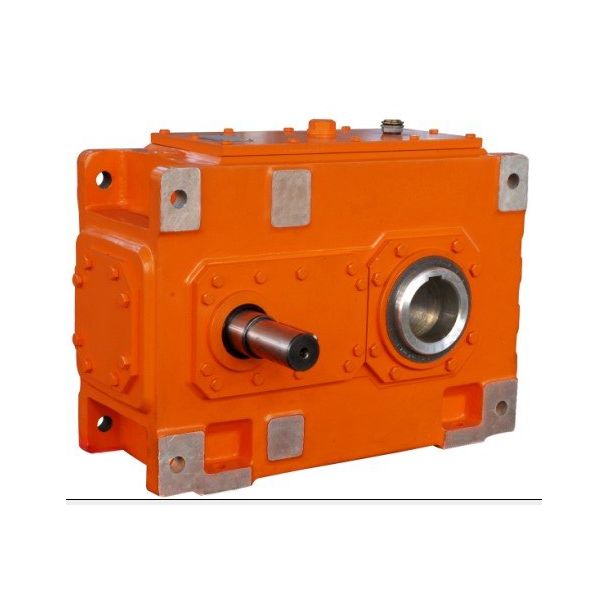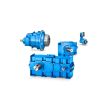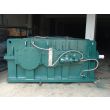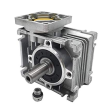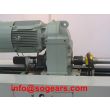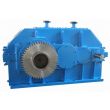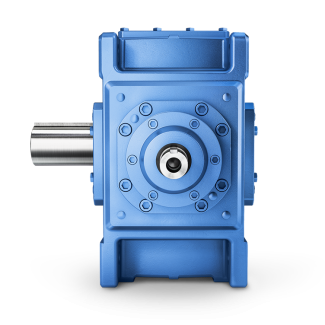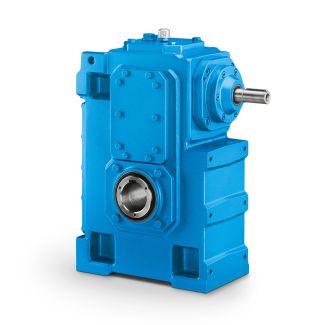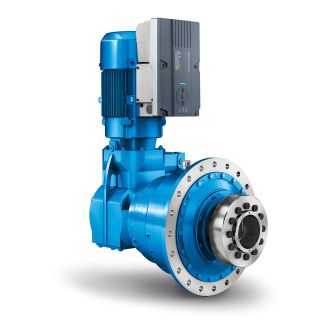B3-CV5-B it on request Shaft version with reinforced bear Bevel-helical speed reducers B3
In stock
SKU
B3-CV5-B
$12,000.00
Flender/Flender Gear Units/Bevel-helical speed reducers B3
particle size distribution of the various filter stage dusts was determined by two different methods The predicted appreciable fractionation of the dusts according to particle size could not be determined All dusts contained coarser ( prox 1 [MCrlm), fine (approx
the dusts according to particle size could not be determined All dusts contained coarser ( prox 1 [MCrlm), fine (approx  1 [MCrIm) and ultrafine, increasing proportions of fine and ugrafine particles In the case of the trace elements Pb, Zn
1 [MCrIm) and ultrafine, increasing proportions of fine and ugrafine particles In the case of the trace elements Pb, Zn  and , the accumulation behaviour was traced with decreasing particle sizes by -ray fluorescence analysis, AAS and AES-IPC However, as
and , the accumulation behaviour was traced with decreasing particle sizes by -ray fluorescence analysis, AAS and AES-IPC However, as  in the case of clean-gas dusts, only linear increase, and not an exponential growth of the trace ele- ment concentrations could be determined with decreasing particle sizes The analysis of the ultrafine dust components, carried out on the filter dust from slag tap fur- nace by TEM/EDS, showed that - as in the receding clean- as dust investigations - the in- crease in the content of trace elements and Reavy metals at &creasing particle sizes can only be determined statistically 1 Duration: 0 0 8 - 3 0 8 0 VQ3 Subject: Investigations of odours and polycyclic aromatic hydrocarbons in heating exhausts Research centre: lnstitut fur Verfahrenstechnik und Dampfkesselwesen der Uni Stuttgart Pfaffenwaldrtng 2, 7 Stuttgart Government sponsorship: DM 4,4 5 Sponsorship ratio: 1 / 1. Purpose of the project Combustion processes are one of the main sources for human caused air pollution. In the case of firing laces one has to consider the used fuels and the pollutant emissions when distinguiskng between large-scale power plantfurnaces, middle-sized industrial furnaces and small-scale house heatings. The emissions of sulfur dioxide, nitrogen oxide and flue dust from inorganic elements of the fuel being in the fore in large-scalefurnaces, dueto the use of cheap fuels and due to high combustion temperatures, middle-sized and small-scale firing places alsodemandtheconsiderationofemissionsoforganicpollutantssuchassootandC0 because they mainly work
in the case of clean-gas dusts, only linear increase, and not an exponential growth of the trace ele- ment concentrations could be determined with decreasing particle sizes The analysis of the ultrafine dust components, carried out on the filter dust from slag tap fur- nace by TEM/EDS, showed that - as in the receding clean- as dust investigations - the in- crease in the content of trace elements and Reavy metals at &creasing particle sizes can only be determined statistically 1 Duration: 0 0 8 - 3 0 8 0 VQ3 Subject: Investigations of odours and polycyclic aromatic hydrocarbons in heating exhausts Research centre: lnstitut fur Verfahrenstechnik und Dampfkesselwesen der Uni Stuttgart Pfaffenwaldrtng 2, 7 Stuttgart Government sponsorship: DM 4,4 5 Sponsorship ratio: 1 / 1. Purpose of the project Combustion processes are one of the main sources for human caused air pollution. In the case of firing laces one has to consider the used fuels and the pollutant emissions when distinguiskng between large-scale power plantfurnaces, middle-sized industrial furnaces and small-scale house heatings. The emissions of sulfur dioxide, nitrogen oxide and flue dust from inorganic elements of the fuel being in the fore in large-scalefurnaces, dueto the use of cheap fuels and due to high combustion temperatures, middle-sized and small-scale firing places alsodemandtheconsiderationofemissionsoforganicpollutantssuchassootandC0 because they mainly work| Model Type | Bevel-helical speed reducers B3 |
|---|---|
| Gear Type | Bevel Helical Gear |
| Weight (kg) | 560.000000 |
| Ratio Range | 1 : 12.5…71 |
| Low Speed Output | Solid shaft without parallel key |
| Nominal Torque | 11600 Nm |
| Mounting Arrangements | Vertical mounting position |
| Manufacturer | Flender ATB-Loher |
| Country of Manufacture | Saudi Arabia |
| Data Sheet & Drawings | B3-CV5-B it on request Shaft version with reinforced bear Bevel-helical speed reducers B3 |
